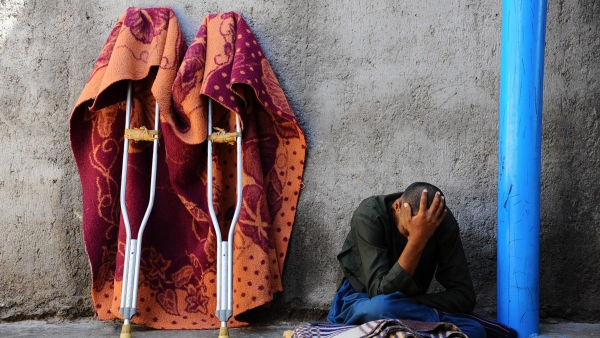Action on Armed Violence (AOAV) is a non-profit international organisation that aims to carry out research and advocacy in order to reduce the impact of global armed violence, focusing especially on harm caused by explosive weapons. To help reduce this suffering, the AOAV carries out research and advocacy campaigns to strengthen international laws and standards on the availability and use of conventional and improvised weapons, to build recognition of the rights of victims and survivors of armed violence, and to research the root causes and consequences of armed violence in affected countries. The AOAV's report examines how Afghanistan is currently addressing the increasingly widespread problem of civilian mental health in terms of health resources and social contexts, and the impact this has on some of the nation's most vulnerable groups.
Afghanistan is one of the most dangerous places in the world for civilians, for years constantly at war and with numerous victims caused by explosive violence. According to the AOAV, Afghanistan was the country most affected by explosive weapons in August 2020, with 353 civilian casualties recorded. Despite the start of peace talks between the Afghan government and the Taliban last month, the explosive violence in the country still causes concern.
The consequences of this prolonged violence are manifesting themselves on the mental health of the population, becoming an increasingly serious problem. In recent years, there has been a dramatic increase in post-traumatic stress disorder (PTSD) and other psychological conditions related to the conflict throughout the country. According to the International Psychosocial Organisation (IPSO), 70% of the 37 million Afghans need psychological support.
One of the main problems is the significant lack of psychological support, allowing less than 10% of the population to receive the medical services needed to treat their psychological disorders. One of the results of this lack of resources and infrastructure is that Afghans often either do not seek the help they need, or are simply sent home with a prescription for psychotropic drugs. In this way the hospital beds available for the mentally ill remain free for the cases of war victims deemed to be more serious. In addition, the lack of mental health culture among the population tends to encourage the use of psychologically harmful illicit drugs, contributing to make Afghanistan one of the countries with the highest number of opiate users in the world.
Among the people most affected by explosive devices there are children and women, especially with regard to the psychological effects. The problems most commonly encountered by children who have been exposed to armed violence are: depression, night terrors, difficulty concentrating, aggressive behaviour, mutism, and even sleepwalking. While the trauma experienced by women in conflict is further aggravated by intimate partner violence (IPV) occurring in domestic settings. Women who experience both war trauma and IPV are more likely to use domestic violence on their children, thus contributing to their psychological trauma and creating a cycle of intergenerational mental health problems. Women also have greater difficulty accessing mental health services in Afghanistan, often due to cultural factors.
This AOAV report shows that the psychological impacts of armed violence are very evident in Afghanistan. Decades of conflict and explosive violence increase the prevalence of mental health conditions in a population. This is why the AOAV calls for efforts to improve mental health services and awareness of these problems in order to treat victims effectively and address stigmatisation. The ongoing talks between the government and the Taliban are very important for the long-term mental and physical well-being of the civilian population in this country, as an end to conflict is crucial to solving most of the mental problems of civilians.
To know more, please read:
https://aoav.org.uk/2020/the-impact-of-the-conflict-in-afghanistan-on-civilian-mental-health/
https://www.who.int/mental_health/evidence/Afghanistan_WHO_AIMS_Report.pdf
https://www.hrw.org/news/2019/10/07/afghanistans-silent-mental-health-crisis
Author: Carla Pintor







